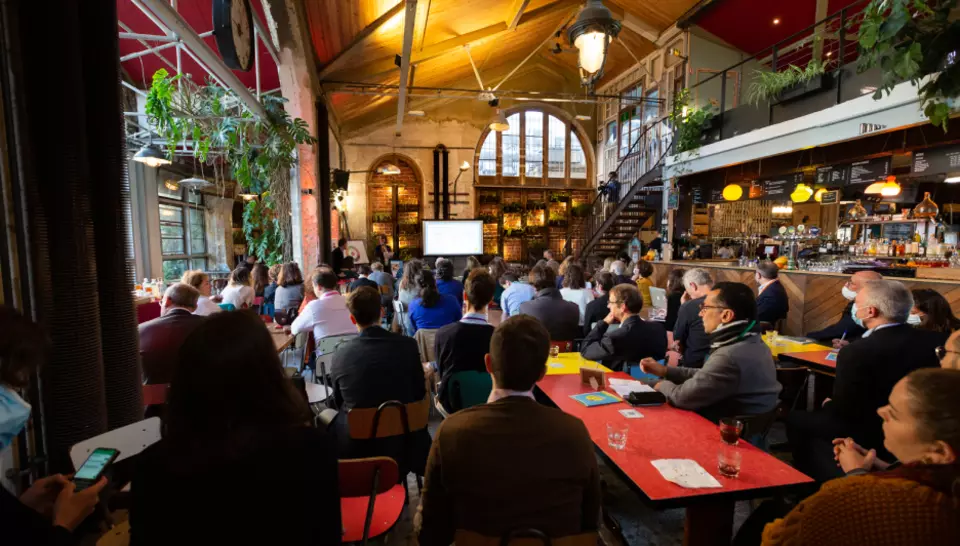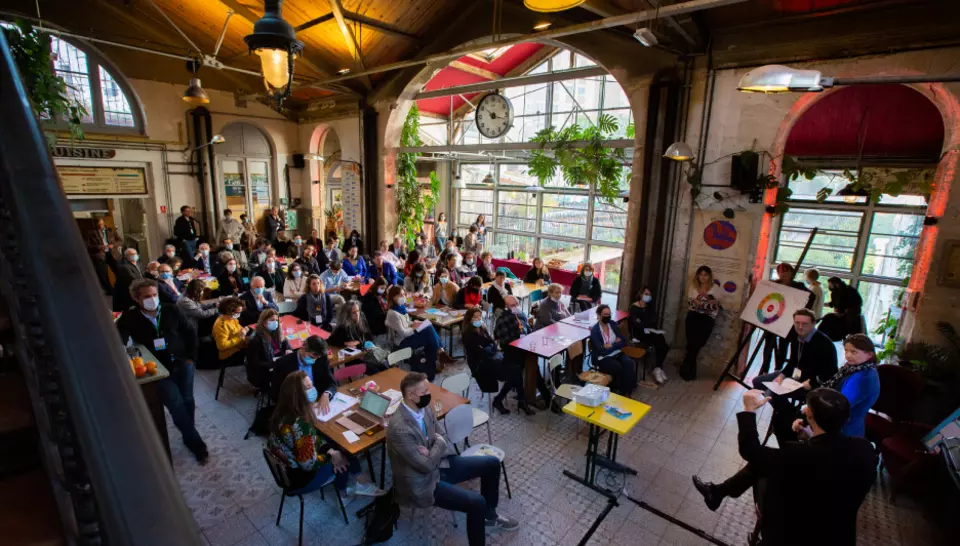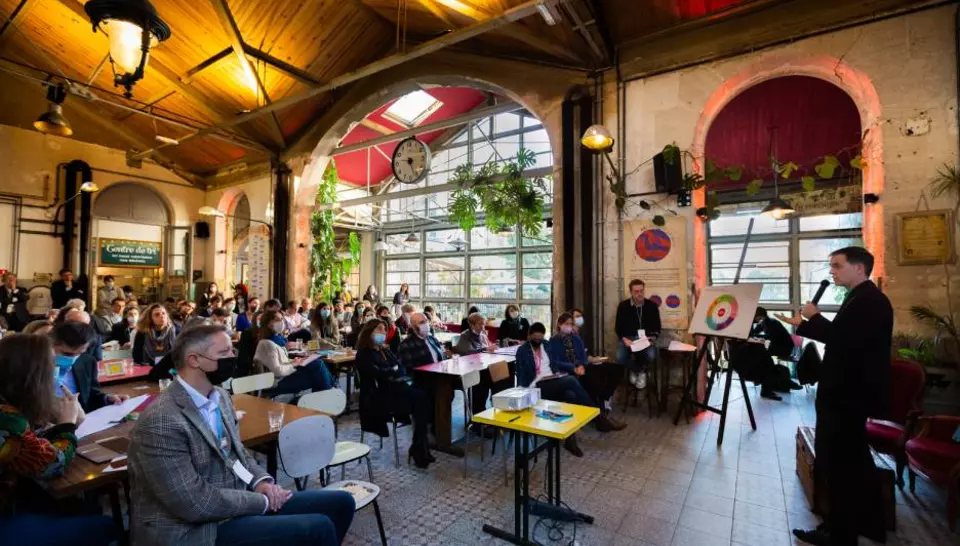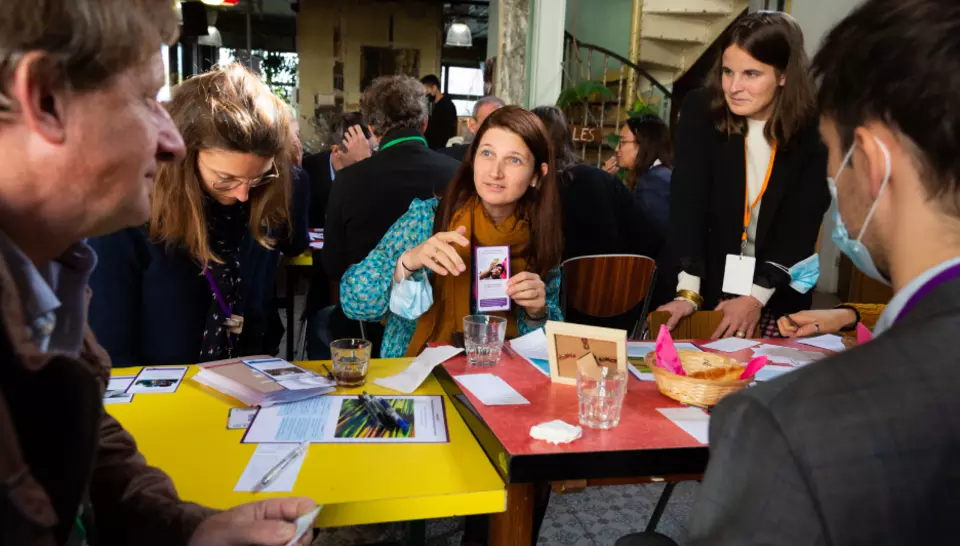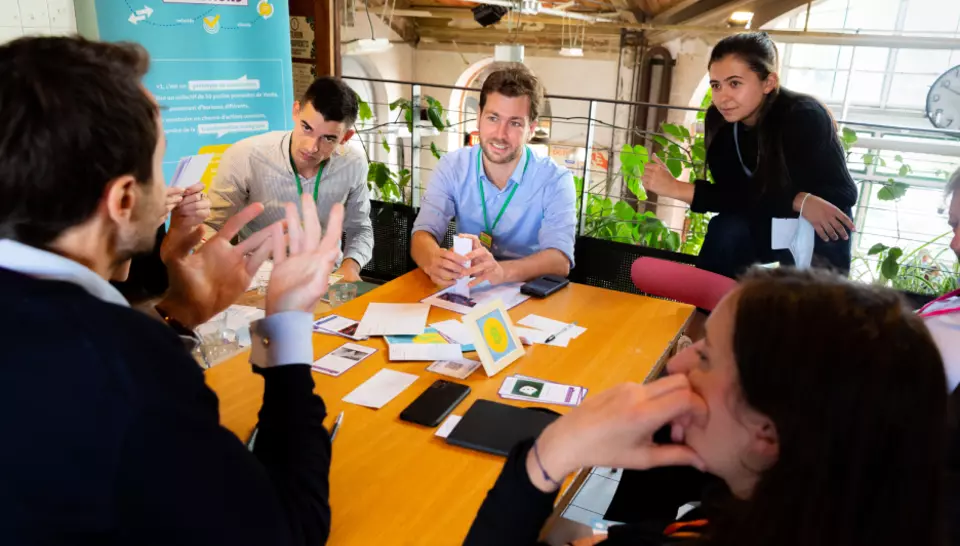After a first session on the theme of listening, the members of the “+1” collective met again on 12 October. From projections into the future to the creation of democratic bodies, as well as implementing solutions based on chance, they came up with innovative mechanisms to convert listening into collective decision-making at the service of the ecological transformation.
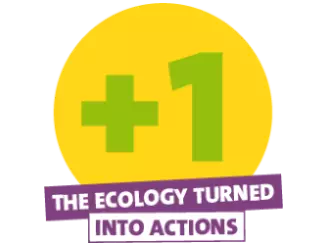
For the launch of the “+1, the ecology turned into actions” consultation prototype, initiated by Veolia in partnership with Usbek & Rica and the REcyclerie, on 14 September, the theme was Listening. How can we bring employees, shareholders, customers, citizens, experts and NGOs around the table to establish effective dialogue on the subject of ecological transformation? The fifty or so participants of this session had worked on solutions to best involve all stakeholders, whether by giving a voice to representatives of the living world or by encouraging the expression of everyone's subconscious, to turn thoughts into actions for a practical, everyday ecology.
This second session was a further step in this line of thought.
"After taking the time to learn to listen to each other better, to build a reliable and trusting base for our action, the idea now is to think about how to better decide collectively, to succeed in creating value that is more widely shared",
explained Fanny Demulier, Coordinator of the Steering Committee of the Purpose of Veolia, emphasising "the desire to work in a less compartmentalized way" which is at the heart of this collective.
In fact, the company of today - and even more that of tomorrow, we’d like to bet - does not act alone. That is the substance of what was said by Anne Le Guennec, General Manager of the Recycling and Recovery of Waste France activities of Veolia.
For a long time, the circular economy and ecology were very individual gestures. There was a moment, two or three years ago, when it became clear that individual civic gestures were no longer sufficient given the urgency of the situation, and people asked for the government to get involved and for industrialists to provide solutions. The challenge today is to reconcile the civic gestures and the strategic choices of industrialists in order to respond collectively and effectively to the challenges of ecological transformation. We are part of this chain, notably because we are helping industrialists to produce better (through eco-design initiatives, for example) but also citizens to sort and recycle better.
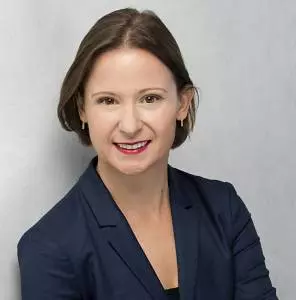
Decide with "less dopamine and more sense"
Articulate this chain to take a common path: the challenge is considerable, especially since, as noted by the doctor in neurosciences and scientific journalist Sébastien Bohler, winner of the Environmental Book Prize of the Veolia Foundation for his book "Le bug humain. Pourquoi notre cerveau nous pousse à détruire la planète et comment l’en empêcher" "("The human bug. Why our brain incites us to destroy the planet and how to stop it")" (Robert Laffont, 2019) and author of "Où est le sens ?" "("Where is the meaning?")" (Robert Laffont, 2020),“there is no such thing as a collective brain”.
Human beings are very good at collaborating on technical aspects, but on the decision-making and strategic aspect, it is more difficult to integrate more than a few people, diagnosed Sébastien Bohler. There can be a lot of obstacles to making a smart decision, such as withholding information, or the presence of the department manager during brainstorming sessions which can stifle ideas. By identifying these brakes, we can minimize errors.
At the individual level, we must also detach ourselves from the grip of the striatum, this small organ in the brain which rewards many of our actions that consume resources and emit pollution with a surge of dopamine. The quest for social status incites us, for example, to constantly renew our wardrobes, to buy the latest, new-generation smartphone, to yearn for “likes” on social networks, etc. For the specialist, it would be better to listen to another organ, the cingulate cortex, which instead incites us to find meaning in our long-term existence, and when this is not the case it releases stress hormones.
Finally, he suggested, it seems urgent to "create new, shared outlooks on the world, which reassure our cingulate cortex”, diametrically opposed to "the permanent acceleration of the rhythms of life" which does not make us happier, quite the contrary. In short, a complete paradigm shift to make decisions with “Less dopamine and more sense. ”
Choosing a course and sticking to it is undoubtedly the best way to get there, then argued Anne-Claire Impériale, Head of ESG Research (environmental, social and governance criteria) at Sycomore, an asset management company labelled B Corp, and member of the +1 collective.
For the companies that have chosen to define their mission very clearly, this is what allows them to make the right decisions, by ensuring that they are always aligned with this mission (which must have been the subject of a collective listening session beforehand).
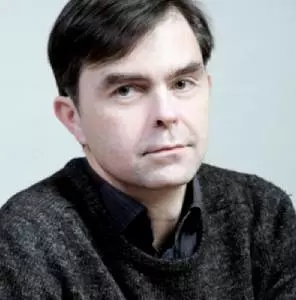
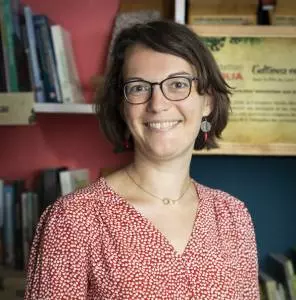
Decide in the light of the future
Thinking long term while initiating change quickly: that sums up the complexity of the task at hand. An issue to which the collective intelligence workshops have tried to provide answers through the design of innovative decision-making devices. Divided into 10 groups, the 50 participants with varied profiles, each representing a stakeholder in Veolia (employees, customers, shareholders, society, the planet) focused on a specific aspect of the decision-making process among five major themes:
- Conditions: how to create the conditions for co-construction?
- Course: how to choose a course and stick to it together?
- Ecosystem vision: how to bring the stakeholders together and enable them to identify their interdependent relationships?
- Diagnosis: how to qualify the problem and our responsibilities concerning it?
- Governance: who decides? How do you get involved in the decision-making process?
“As Sébastien Bohler says, our brains are sometimes held back by shared representations. To escape from that, you have to appeal to the imagination”, recommended Max Mollon, teacher-researcher and creator of design fiction workshops, by presenting, as in the first session, cards with solutions from science fiction, existing human practices, or even living mechanisms, from which we can draw inspiration. Faced with the urgency of the situation, should we decide under the constraint of stress and survival, like in the series Squid Game where the characters are invited to take part in a deadly game? Or imagine reversible decision-making processes, like the National Agency for the Management of Radioactive Waste (Andra), which has opted for deep disposal while allowing itself the freedom to change if a better solution were ever to be found? Unless we just have to trust the group, like the swarm trusting scout bees to lead them towards the best place.
But it is undoubtedly the solution inspired by Throne of Blood (1957) by Akira Kurosawa, where the hero's wife influences him to make a prophecy come true, which spoke to the participants the most. Predicting the future would indeed be very practical to fight against the fear of the unknown experienced by some companies when it comes to adopting more responsible practices that could endanger their economic model. We would then be able to ask a human in 2050 or 2100 if the solution in question paid off and the company did well, one of the groups suggested. Another imagined the creation of an assembly called “the shapers of the course”, back in time from the year 2057 and made up of messengers from future generations and from nature come to enlighten decisions.
Creation of democratic bodies and randomization
The concrete solutions emerging from this detour through fiction gave pride of place to new democratic bodies, giving a voice to stakeholders who are rarely heard. Among them, a committee for nature and future generations holding a seat at the City Council, a two-pillar council working for water sobriety (made up of a residents' committee and a scientific committee) or an ecosystem council giving the floor to representatives of mountains, rivers and forests. Mentioned on several occasions, the Citizens Convention for Climate was a major source of inspiration.
Putting ourselves in the shoes of the first to be affected is also an idea suggested by one of the workshop groups reflecting on the controversial place of the wolf in France: what if, to establish a shared diagnosis, a camera were to be placed on the animal's head or it were to be followed by a drone? This sensitive experience would undoubtedly allow us to better understand his behaviour.
Another avenue explored within the framework of these workshops: incorporating chance into decisions to accelerate the implementation of solutions. Tackling the subject of vehicle-related air pollution, participants proposed setting up random but reversible LEZs (low-emission zones) in randomly chosen geographic areas that would test various solutions: cycling only, the modification of car engines, particle traps, etc.
These proposals will be made available to all in a final deliverable so that the mechanism can then be deployed more widely in other contexts, by all those who wish to be inspired by it.



